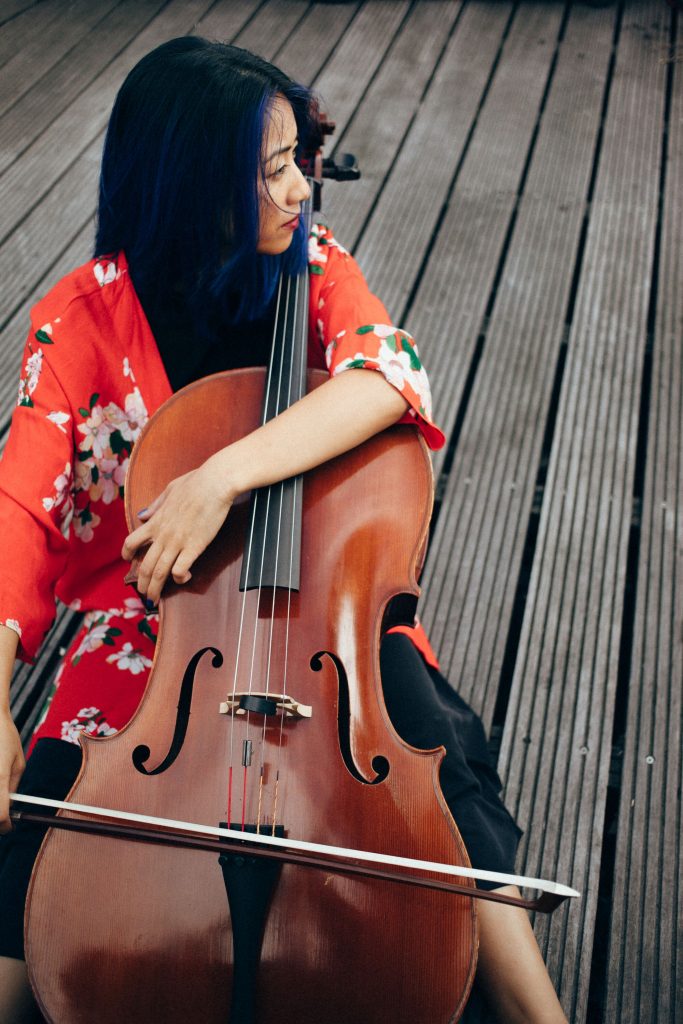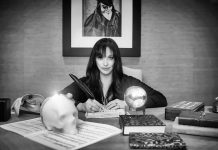 Australian-born music producer and classically-trained cellist Janice Wong, a.k.a. The Wong Janice, has led an impressive career. She graduated with a Licentiate Diploma in Music at age 18 and has shared stages with artists such as Imogen Heap and Michael Kiwanuka.
Australian-born music producer and classically-trained cellist Janice Wong, a.k.a. The Wong Janice, has led an impressive career. She graduated with a Licentiate Diploma in Music at age 18 and has shared stages with artists such as Imogen Heap and Michael Kiwanuka.
Wong’s career, however, wasn’t always centered around music. For six years she was the social media manager for sportswear company Adidas. Then, in 2017, Wong made the decision to take on music full time and graduated from Abbey Road Institute with an Advanced Diploma of Music Production and Sound Engineering.
Wong now produces her own music between freelancing and working at Red Bull Studios Amsterdam as an assistant audio engineer. Her latest project, Cello Music for Meditation, was created specifically for yoga and meditation purposes.
For more information, check out thewongjanice.com.
WiMN: How did you start playing the cello? What makes the instrument special to you?
JW: I actually started with the piano, but at age eight, my parents wanted me to play an orchestral instrument so I could play with others. A music teacher nearby offered flute and cello, and I picked the cello straight away. It was love at first listen! The cello is really special to me. It’s like my oldest friend and I feel really secure and confident when I play. I love that I can touch others with my cello music and I believe the cello is a really special instrument in that respect.
WiMN: You previously had a six-year career in social media marketing for a large company. What made you leave this role to pursue music full time?
JW: After six magical years in the corporate world, having experienced golden years somewhere in the middle (working with Justin Bieber and Selena Gomez on many campaigns!), and I was looking to move on. I searched for some time inside and out to what I wanted to do next and my heart was telling me to follow music. So then I decided to study Music Production & Sound Engineering at Abbey Road Institute because I decided that I wanted to be a music producer.
WiMN: What was it like to study at the Abbey Road Institute?
JW: It was a very intense year! I learned so much, and the facilities were top-class. The teachers were all experts in their field and really care for your growth. The sky is the limit there. My final recording project, for example, was to be the lead music producer and record a Rockabilly-Swing band with a 13-piece big band! And from there, I was able to work at Red Bull Studio Amsterdam as an assistant recording engineer. The best thing was to graduate at Abbey Road Studio in London, home of The Beatles and many other famous bands in history.
WiMN: Tell us about the Cello Music for Mediation project. What inspired the album? What do you hope listeners experience?
JW: After I graduated from my course, I set out to compose, record and produce my own album for the first time. After a while of experimenting with different styles, like electronic music, creating beats, and writing cinematic music, the meditation music just came to me one day, and it was like a light-bulb moment. Every piece from the album is inspired by an emotion, selected from Robert Plutchik’s emotion wheel. I hope that listeners can use my music as a backdrop for meditation, falling asleep, yoga, healing, therapy, finding flow, or wherever it helps them.
WiMN: Is meditation part of your life? How did it inform writing and creating this project?
JW: A few years ago I took part in a ten-day Vipassana meditation course which was a very strict ten days in silence and it literally changed my perspective on life: to live a lighter, positive and more humble life. I also wanted to transfer this feeling of complete calm to more people around me, and I didn’t feel comfortable pushing a meditation course onto others. At a certain moment, I realized that playing the cello gives me the same calm inside as Vipassana meditation and then I knew it was my calling to spread my cello music to achieve the same result.
WiMN: How is your live show different from a typical cello performance?
JW: The main differences between my live show and a typical classical cello performance are for one; the use of electronics to amplify and alter my sound, and two; I mostly improvise, which is like another world apart for classically trained musicians. I use a loop machine with a drone that I recorded with my electric cello with a Strymon Reverb Pedal. Then I improvise sweeping cello melodies on top of the drone, with reverb and delay effects. Oh, and another unique aspect of my show is that audience members are invited to close their eyes or even lie down.
WiMN: Can you tell us your favorite piece of cello music?
JW: I would have to say Elgar’s Cello Concerto in E minor. It’s an extremely deep and powerful piece, which is also a very intricate and difficult piece to master. When I saw it performed live in concert, I cried.








